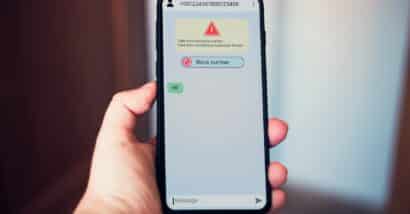 Often, when a customer calls into a business or customer service line, the call is recorded. This is not illegal if both parties are aware that the call is being recorded and continue the conversation.
Often, when a customer calls into a business or customer service line, the call is recorded. This is not illegal if both parties are aware that the call is being recorded and continue the conversation.
However, sometimes calls are recorded and the caller has not been made aware. This behavior violates California law and could constitute grounds for a caller to file a call recording lawsuit.
Many companies, including popular restaurant chain TGI Friday’s, have customer service phone lines. If a customer calls into TGI Friday’s customer service line and the initial greeting does not inform the caller that the call may be recorded, the caller may be able to file a call recording lawsuit if that call is in fact recorded.
Both federal and state laws regulate the recording of phone calls. Federal law states that only one party must be made aware of the recording for it to be legal. In essence, someone may not eavesdrop or “listen in” on a phone call without at least one party understanding what is happening.
However, California law is much stricter. California law establishes recording phone calls without both parties’ agreement as a misdemeanor punishable by law. California’s constitution considers the right to privacy an inalienable right.
According to California law, if someone, with intention, records communication that is confidential whether it is via telephone or with another type of recording device can be found guilty of the crime of Criminally Recording Confidential Communication.
If a company or individual is found guilty of this, severe consequences can ensue. Each violation is punishable by a fine of up to $2,500 and jail time is also a possibility.
But, in order to violate California law, it must be proven that a company like TGI Friday’s was intentional in their surreptitious call recording, that at least one party did not give consent or agreement to the call recording, the conversation was in an environment that is normally confidential, and that the “listening in” occurred with the use of an electronic device such as a phone or other device.
Customers who call into a customer service line are often greeted with a recording that might say something like, “This call may be recorded for training purposes…” If a customer calling into TGI Friday’s or some other company remains on the line after a greeting similar to that, they are giving their consent to be recorded.
However, if the greeting does not say anything about recording and the call is recorded, that person may be eligible to file a call recording lawsuit against the company. In California, the law prohibits recording if consent is not given by both parties.
Some customers of TGI Friday’s suspect that their calls may be recorded without their knowledge. If you believe that you have been recorded by TGI Friday’s or another company and you did not give your consent to be recorded, that company may have violated California law. You may benefit from discussing your call recording lawsuit options with a qualified attorney.
Join a FREE California Call Recording Class Action Lawsuit Investigation
If you live in California and you did not receive a warning when calling a toll-free number, your call may have been recorded in violation of California law, and you may be entitled to compensation. See if you qualify to file a California call recording class action lawsuit.
ATTORNEY ADVERTISING
Top Class Actions is a Proud Member of the American Bar Association
LEGAL INFORMATION IS NOT LEGAL ADVICE
Top Class Actions Legal Statement
©2008 – 2025 Top Class Actions® LLC
Various Trademarks held by their respective owners
This website is not intended for viewing or usage by European Union citizens.














